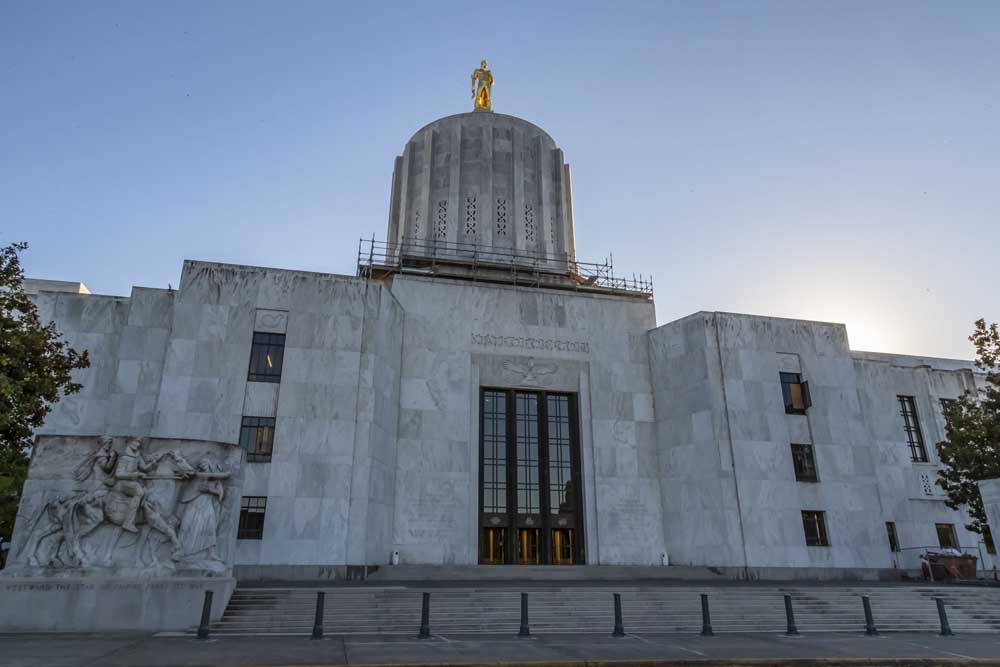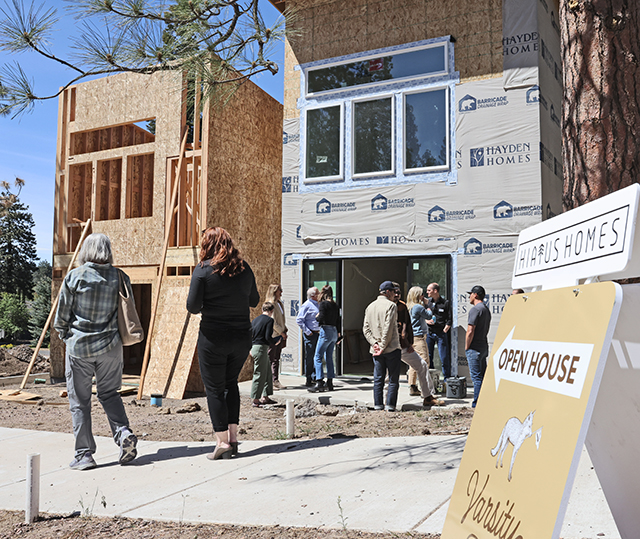Oregon liability protections in limbo while governor mulls third special legislative session
Published 3:22 pm Thursday, August 20, 2020

- The Oregon State Capitol in Salem.
Oregon lawmakers did not address coronavirus liability protections for businesses, schools, hospitals and other organizations during a one-day, 15-hour special session on Aug. 10.
The omission came as a surprise, given that the consideration of liability protections appeared to be a key issue coming out of the first special session in June.
But Sen. Floyd Prozanski, D-Eugene, who has been involved in two work groups considering liability protections, said the groups simply didn’t have enough time to come to an agreement on the language for potential legislation ahead of the August special session.
The goal is to have legislation ready in time for a possible third special session this fall, Prozanski said.
Senate President Peter Courtney echoed that sentiment last week, saying he anticipated bills to limit the liability of coronavirus lawsuits and to ensure worker’s compensation for people who contract coronavirus at work to be taken up in a third special session.
Gov. Kate Brown has not said whether she will summon lawmakers for that third session, or, if she does, when it might take place.
Prozanski, who is heading a work group considering coronavirus liability protections for medical providers, said the group is close to sending its ideas to the Legislative Counsel to draft legislation. He said that legislation could serve as a framework for the liability protections that another work group is considering for businesses, schools and other entities.
Prozanski, who has been sitting in on meetings with the second work group, said the group is still trying to determine how legislation for schools might need to differ from legislation for businesses. While many schools will not reopen this fall due to the pandemic, Jim Green, the executive director of the Oregon School Boards Association, said last month that liability protections are needed for schools to even consider reopening because their insurance providers aren’t offering communicable disease coverage.
A coalition of more than 50 businesses, schools, government entities and nonprofit organizations have been pushing the Oregon Legislature to act quickly to enact liability protections that shield entities from coronavirus-related lawsuits, “except in cases of gross negligence or reckless, wanton or intentional misconduct.”
Health care organizations have pushed for similar protections. Those organizations have said they could be vulnerable to lawsuits stemming from the need to delay certain surgeries and ration personal protective equipment during the pandemic.
Republicans lawmakers, industry groups and 10 Democratic members of the Oregon House of Representatives pushed for liability protections for businesses during the special session in June, prompting House Speaker Tina Kotek, D-Portland, to convene a work group to look into the issue.
House Minority Leader Christine Drazan, R-Canby, said that her commitment to seeing the legislation brought to the floor hasn’t changed.
Drazan, co-leader of the work group that is considering liability protections for businesses, schools and other entities, said it is imperative that businesses and schools that are following health guidance are shielded from frivolous lawsuits so they can safely operate amid the pandemic. She said she worried that negotiations over liability protections were being used to serve partisan purposes, rather than being seen as a priority.
“I think the politics of this issue are unnecessarily slow,” Drazan said. “I think as people drag their feet to an agreement, we are continuing to expose organizations and schools to the potential for lawsuits that they have no real protections against.”
At least 11 states have already implemented liability protections for businesses and other entities amid the coronavirus pandemic.
But opponents of the legislation argue that businesses that are implementing reasonable safety measures are already protected from lawsuits under current law.
Arthur Towers, a lobbyist for the Oregon Trial Lawyers Association, said last month that new legislation would take away the incentive for entities to enact stringent COVID-19 safety measures and would limit the rights of people to hold entities accountable for subpar safety standards.
The type of lawsuits that the liability protections would address have, thus far, been rare in Oregon and nationwide.
According to the law firm Hunton Andrews Kurth, 4,280 coronavirus-related lawsuits had been filed in the United States as of Wednesday.
Those cases include 19 personal injury suits from consumers, 50 wrongful death suits and 76 suits related to conditions of employment. There have been just 27 coronavirus-related lawsuits in Oregon, only three of which fall under those same categories, according to the law firm.
If Oregon puts off liability protections until next year, Prozanski said that businesses and other entities could be exposed to more legal costs if lawsuits start to materialize before then. But he said that even under current law, plaintiffs would have a difficult hurdle to clear to prove that they contracted COVID-19 at a certain establishment.
“No matter what happens regarding the limited liability protections that businesses and others are looking for, there’s still a major hurdle for a plaintiff, and that is the causation,” Prozanski said.






